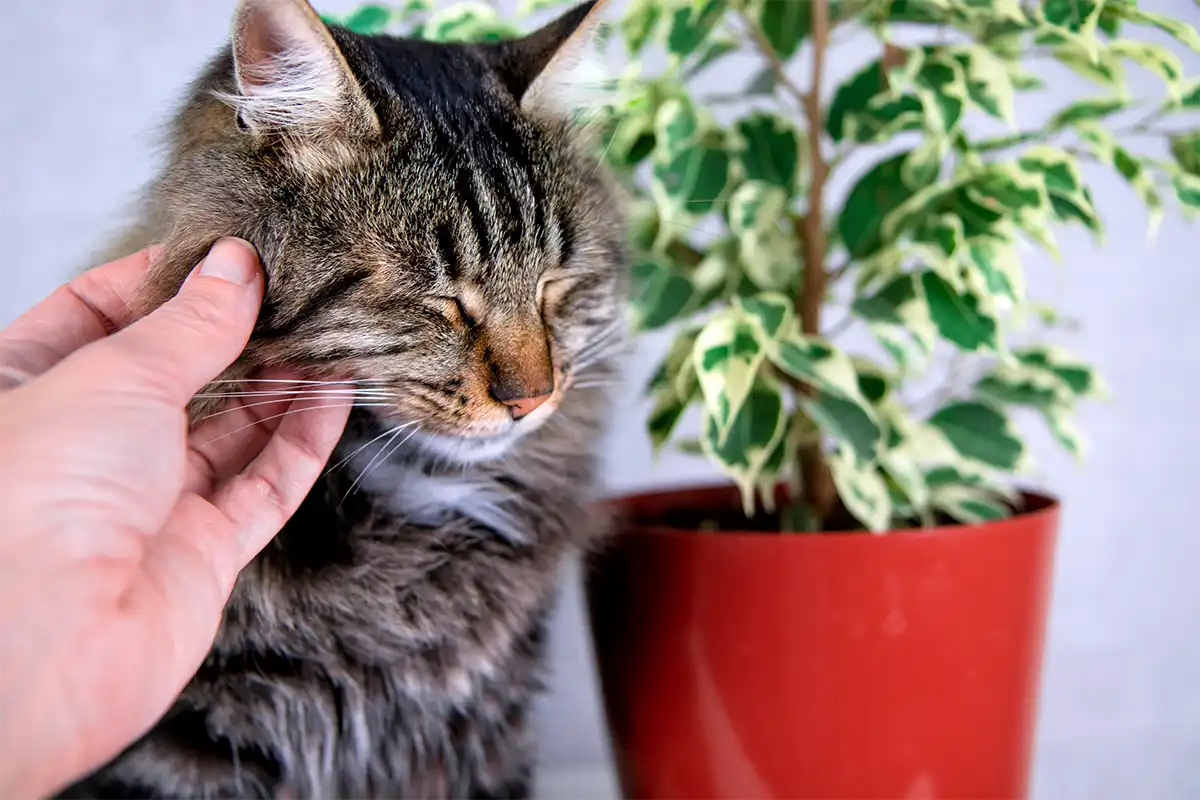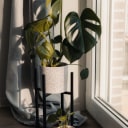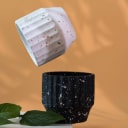The Zamioculcas Zamicro (ZZ Plant) Is Toxic to Cats

The Zamioculcas Zamicro (ZZ Plant) Is Toxic to Cats
The ZZ Plant, also known as the Zamioculcas plant, is a favored indoor greenery option due to its low-maintenance care and appealing appearance. Nevertheless, cat proprietors must acknowledge this plant’s concealed hazards to their feline companions.
What is the reason for the ZZ Plant’s toxicity to cats?
The fluid of the ZZ Plant contains calcium oxalate crystals, which are toxic to cats if consumed. These minute crystals mimic sharp, microscopic fragments, resulting in irritation and discomfort in cats’ digestive system, throat, and mouth. Symptoms of ingestion may include a lack of appetite, difficulty inhaling, vomiting, and drooling. If the secretion of the plant comes into contact with the skin or eyes of your cat, it can also irritate, resulting in behaviors such as squinting or pawing at the face.
What is the reason cats are attracted to ZZ plants?
Cats are inherently curious and are frequently attracted to vegetation, such as the ZZ Plant. The plant’s glossy leaves may attract cats to smell, nibble, or paw at them, which can lead to ingestion or contact with the toxic sap.
How to Safeguard Your Cat from the ZZ Plant: To ensure your cat’s safety from the ZZ Plant, consider situating the plant on high shelves or in rooms that are restricted to your cat. If your cat is a climber, consider using deterrents such as pet-safe sprays or placing citrus segments near the plant to discourage feline interest. Also, reducing your cat’s attraction to potentially harmful plants can be achieved by providing them with abundant toys and safe plants to investigate.
What to Do If Your Cat Ingests the ZZ Plant: If you suspect your cat has ingested any part of the ZZ Plant, pay attention to symptoms such as a loss of appetite, regurgitation, or drooling. Do not attempt to induce vomiting in cases of ingestion unless directed by a veterinarian, as this could exacerbate the condition. Immediately contact your veterinarian and wipe any plant sap off your cat’s fur or skin with a moist cloth. The toxin can be identified, and your veterinarian can administer the appropriate treatment by bringing a plant sample.
Safer Alternatives to the ZZ Plant: To establish a safer environment for your pets, you may substitute the ZZ Plant with non-toxic alternatives such as the Boston Fern, Ponytail Palm, or Spider Plant. It is important to ensure that your home is stocked with pet-safe plants and that your cat has access to a stimulating environment to prevent incidents involving toxic plants.
Pet-Friendly Houseplants: Safe and Stylish Alternatives to the ZZ Plant
Owners seeking lovely houseplants prioritize selecting plant species that aren’t toxic to cats. Despite the ZZ Plant’s widespread acclaim for its low-care requirements, cats are gravely endangered by the poisonous sap it produces. The good news is that there is no shortage of non-toxic options that are just as lovely and low-maintenance, striking the ideal balance between aesthetics and pet safety.
The Boston Fern, a fluffy, verdant plant with a knack for air purification, is a fantastic choice. Not only is it safe for cats, but it also brings a touch of nature to any room. Boston Ferns thrive in high humidity or indirect sunlight, making them perfect for your home. Your curious cat can nibble on a few fronds without any worries, thanks to its pet-friendly nature.
The Ponytail Palm is another option; it’s suitable for pets and looks like a sculpture thanks to its long, flowing leaves. The Ponytail Palm may appear exotic but requires little care and watering to thrive. Also, the Spider Plant is a great option if you own cats. The Spider Plant, easily recognized by its arching, striped leaves of green and white, is a non-toxic houseplant that also serves as a natural air cleaner, making it safer for your pet and yourself. By opting for these risk-free substitutes, you can relish indoor vegetation’s aesthetic value without endangering your cat’s health.
Here’s a comparison table of houseplants that are safe for cats versus the ZZ Plant, which is toxic:
| Plant Name | Toxicity to Cats | Description | Care Level | Safe Alternatives |
|---|---|---|---|---|
| ZZ Plant (Zamioculcas) | Toxic | Contains calcium oxalate crystals which can cause irritation, vomiting, drooling, and loss of appetite in cats. | Low-maintenance | Not recommended for homes with cats. |
| Boston Fern | Non-toxic | A pet-safe fern with fluffy fronds that is safe for both cats and dogs. | Moderate | Great alternative for pet owners. |
| Ponytail Palm | Non-toxic | A drought-resistant plant with a bulbous base and long, grass-like leaves. Safe for cats and dogs. | Easy | Excellent alternative with a unique look. |
| Spider Plant | Non-toxic | Known for its arching leaves and air-purifying properties. It is safe for cats. | Easy | Another great option for pet-friendly households. |
This table compares the safety, care level, and non-toxic alternatives to the ZZ Plant for homes with cats.
Faq :
- Are ZZ plants toxic to cats?
Yes, ZZ plants are mildly toxic to cats. They contain calcium oxalate crystals, which can cause irritation in the mouth, throat, and stomach if ingested. Symptoms may include drooling, vomiting, and difficulty swallowing. Always keep this plant out of your cat’s reach. - What are the symptoms of ZZ plant poisoning in cats?
If your cat ingests any part of a ZZ plant, symptoms may include drooling, vomiting, loss of appetite, lethargy, and oral irritation. Seek immediate veterinary care if you observe any of these signs in your pet. - What should I do if my cat eats a ZZ plant?
If you suspect that your cat has ingested a ZZ plant, wipe any sap from their mouth or fur and contact your veterinarian as soon as possible. The vet might induce vomiting or administer fluids to help flush out the toxins. - How can I prevent my cat from eating toxic plants like ZZ plants?
Place toxic plants on high shelves or in rooms that your cat cannot access. You can also use pet-safe deterrent sprays or place citrus peels near the plant, as cats tend to dislike strong smells like citrus. - Are there safe alternatives to ZZ plants for cat owners?
Yes, several non-toxic plants are safe for cats, such as the Spider Plant, Boston Fern, and Areca Palm. These are great alternatives for pet owners who want to keep both greenery and their pets safe. - What other common houseplants are toxic to cats?
In addition to the ZZ plant, other houseplants toxic to cats include lilies, philodendrons, and aloe vera. It’s essential to research plant toxicity before introducing new plants into your home.





